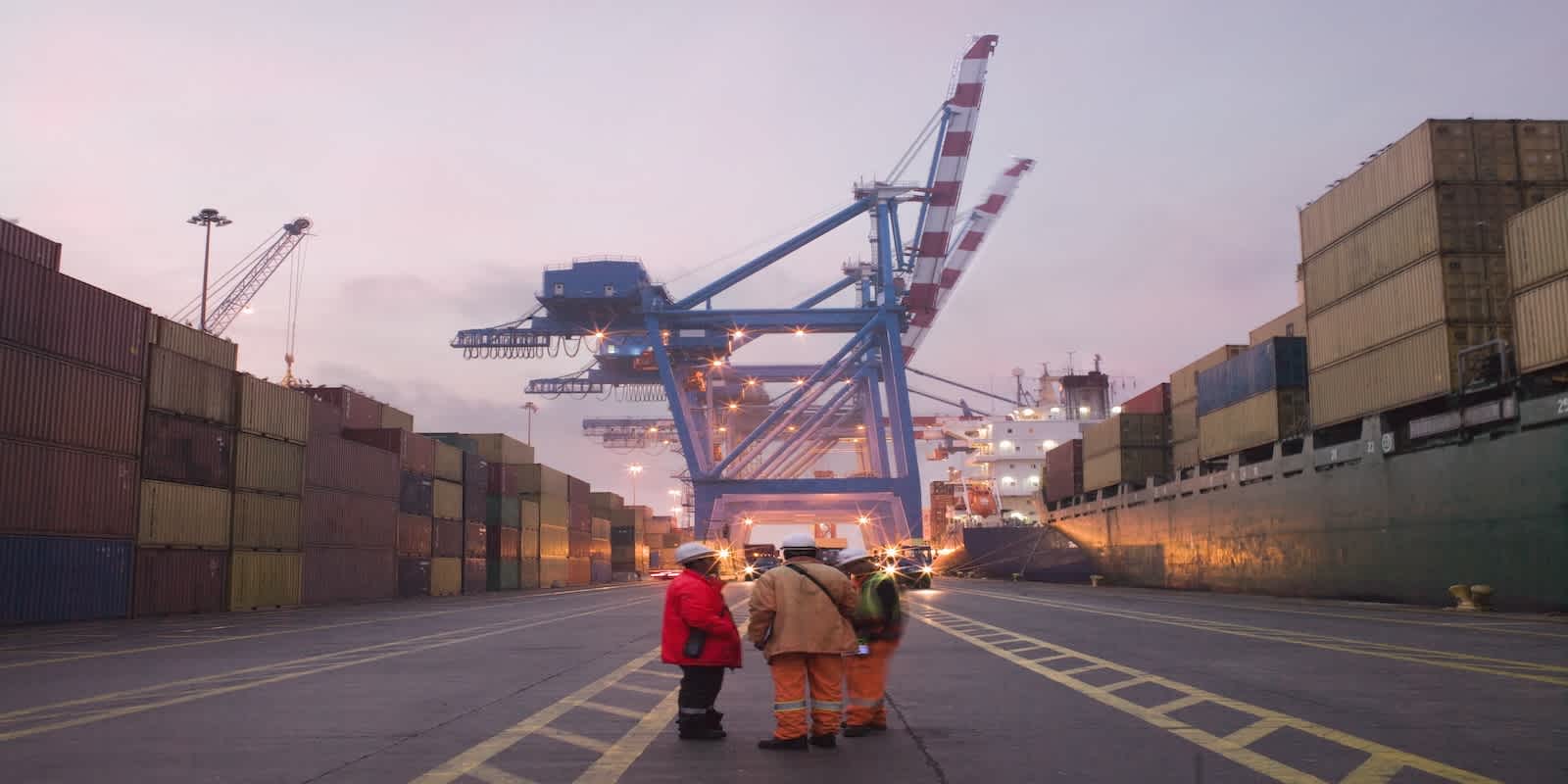
February 5, 2021
Dunnage for Ecommerce Orders: When To Use It and How To Reduce Costs
This blog post was originally published by Deliverr, which is now Flexport. The content has been adjusted to fit the Flexport brand voice and tone, but all other information remains unchanged. With the merging of Deliverr’s services (DTC fulfillment, B2B distribution, and Last Mile delivery) into Flexport’s existing international freight and technology services, we’re now able to provide merchants with true end-to-end logistics solutions spanning from the factory floor to the customer’s door.
Dunnage might not be an eCommerce term you come across often, but with the potential to save your business significant time, money, and reputation, it should be.
Last year, there was a 19% increase in damaged packages in the U.S., and with online shopping and home deliveries increasing, experts expect the number of damaged deliveries to continue rising.
Turns out, it's not just your customers who suffer.
Damaged deliveries cost you time and money to resolve, not to mention the reputational damages that can follow.
In this guide to dunnage for eCommerce orders, we explain how dunnage can help you avoid these consequences by minimizing damaged deliveries, covering the different types of dunnage, picking the right dunnage for your products, and reducing dunnage costs effectively.
What Is Dunnage?
Dunnage is the protective material that sits inside packages and parcels, protecting the contents against damage and other mishaps.
For example, you might use packing peanuts to fill a parcel holding a bottle of perfume to prevent it from getting broken or damaged during the delivery journey -- either from bumps and drops or from other items in the parcel.
The Importance of Dunnage
While some may consider dunnage unnecessary weight, space, and cost, it’s actually a crucial component of any eCommerce packaging. Dunnage offers a long list of benefits.
1. Damage Protection
Dunnage protects the contents of packaging and parcels by reducing and cushioning the movement of products inside.
2. Shock Absorption
Dunnage materials absorb external impacts to the package, preventing or minimizing damage to the contents from being dropped. They’re often thrown in delivery trucks, placed in chutes, or stacked under other boxes.
3. Moisture Absorption
Certain dunnage materials absorb moisture that would otherwise damage non-waterproof goods, such as paper, electronics, and edible items.
4. Theft Protection
Anti-tamper dunnage makes it difficult for thieves to open packages and steal products quickly, deterring them in the process.
5. Air Circulation
Loose-fill dunnage provides air circulation that allows products such as clothing or food to remain fresh and odor-free.
6. Weight Distribution
Dunnage also allows you to separate and distribute package contents to ensure an even weight load, making packages sturdier and easier to handle.
In a nutshell, dunnage protects your products, safeguarding your revenue and reputation against the consequences of damaged deliveries and product returns.
The Different Types of Dunnage
Alongside the long list of dunnage benefits is a long list of dunnage materials. Packaging protection for eCommerce orders comes in all different shapes and sizes, each with its advantages and considerations.
The most common dunnage for eCommerce orders include:
Air Pillows
Air pillows are plastic pillows filled with air, and they’re excellent for providing cushioning around and between the products to hold them in place and protect against damage.
- Benefits: Lightweight and cushioning
- Considerations: Not often recyclable
Kraft Paper
Recyclable kraft paper is commonly used to fill space inside packages and reduce internal damage from products colliding. Kraft paper is also deceptively strong, thanks to the removal of most of the lining within the wood.
- Benefits: Eco-friendly, strong, and cost-effective
- Considerations: Doesn’t protect against water damage and may not provide adequate protection for fragile items such as glass
Corrugated Paper
Corrugated paper is another recyclable form of dunnage that protects a variety of product weights.
- Benefits: Eco-friendly, cushioning, strong, and offers moisture protection
- Considerations: May be more expensive than craft paper
Bubble Wrap
Bubble wrap is perhaps the most loved dunnage, with many enjoying popping those little air pockets. As an added bonus, bubble wrap also provides outstanding cushioning and shock absorption for fragile products such as glass and china.
- Benefits: lightweight, flexible, and shock absorbing
- Considerations: not always recyclable and can be bulky
Foam
Foam sheets are commonly used to pad fragile electrical items such as TVs, computer monitors, and tablets. Some foam pockets also come purpose-made to fit products exactly.
- Benefits: Thin, lightweight, and flexible
- Considerations: Non-recyclable and doesn’t protect against severe damage
Foam Nuts
Foam nuts (also known as packing peanuts, foam popcorn, and packing noodles) are a loose-fill dunnage that fills the gaps between the product and the packaging to provide ultimate protection.
- Benefits: Adaptable to the space and available in recyclable material (such as cornstarch)
- Considerations: Old-style foam nuts aren’t recyclable and can be difficult to dispose of
Thermocol
Thermocol (also known as polystyrene) is heavy-duty dunnage used for large items such as fridges, washing machines, and TVs, often combined with foam padding.
- Benefits: Sturdy and robust for larger products
- Considerations: Not readily recyclable, and difficult to dispose of
Wood
Wood is used as dunnage for bulky and expensive goods that require sturdier protection or compartmentalization.
- Benefits: Custom-built to product dimensions, with high-protection properties
- Considerations: More costly than other dunnage materials
Plastics
Plastics are used to protect a wide range of products - from clothing and makeup to toys and gadgets.
- Benefits: Water-proof, customizable, and sturdy
- Considerations: Expensive and not always recyclable
Choosing the Right Dunnage for Ecommerce Orders
When deciding which dunnage to use for your eCommerce orders, take the following factors into account:
Product Type
Consider whether the product itself calls for a specific type of dunnage. For example, a glass vase requires bubble wrap or foam padding to protect against breakage, while a t-shirt requires simple plastic packaging to protect against moisture.
Package Contents
Be mindful of multi-product deliveries. For example, if you’re shipping a beer glass and bottle of beer together, you might add air pillows to stop them from causing damage to one another.
Packaging
Take your outer packaging into account. For example, a fragile item sent in a plastic shipping bag will require more dunnage than when sending the same item in a box.
Delivery Journey
Think about the delivery journey. For example, will the package be left outside, thrown down chutes, stacked under other boxes - or will it be handled with extreme care?
Sustainability
Finally, commit to your company values. If you promote yourself as a sustainable and eco-conscious business, then use dunnage that is easily recyclable and makes a minimal impact on the planet.
How To Reduce Dunnage Costs
Dunnage is one of those hidden fulfillment costs that is easily forgotten but quickly adds up. Our top tips for reducing dunnage costs for your eCommerce business are:
1. Don’t Compromise Protection Over the Cost
It can cost up to 17x the original cost of shipping a product, to replace it - so always choose the dunnage option that offers adequate protection for the products inside.
2. Consider Dunnage Weight
Dunnage materials add extra weight to your products, which can increase shipping costs. Always consider this when calculating the cost of different dunnage materials - especially when sending lightweight products.
3. Be Mindful of the Size
Small products in oversized packages don’t just add unnecessary weight to your eCommerce shipping costs; they’re also an incredible waste of dunnage. Choose appropriately sized packaging for your products and keep at least three different sized packages in stock (small, medium, and large).
4. Consider an All-Inclusive Ecommerce Fulfillment Service
Ecommerce fulfillment services like Flexport can manage your deliveries with all-inclusive fulfillment pricing. That means you'll know exactly how much you'll pay for your fulfillment, encompassing order, pick, pack, ship, and everything in between.
Final Thoughts
Dunnage isn’t a topic often covered in eCommerce blogs, but it should be. Dunnage enables you to provide an outstanding customer experience beyond the buy button by delivering products in pristine condition and avoiding the cost, negative reviews, and time involved in replacing damaged products.
The contents of this blog are made available for informational purposes only and should not be relied upon for any legal, business, or financial decisions. We do not guarantee, represent, or warrant the accuracy or reliability of any of the contents of this blog because they are based on Flexport’s current beliefs, expectations, and assumptions, about which there can be no assurance due to various anticipated and unanticipated events that may occur. This blog has been prepared to the best of Flexport’s knowledge and research; however, the information presented in this blog herein may not reflect the most current regulatory or industry developments. Neither Flexport nor its advisors or affiliates shall be liable for any losses that arise in any way due to the reliance on the contents contained in this blog.



